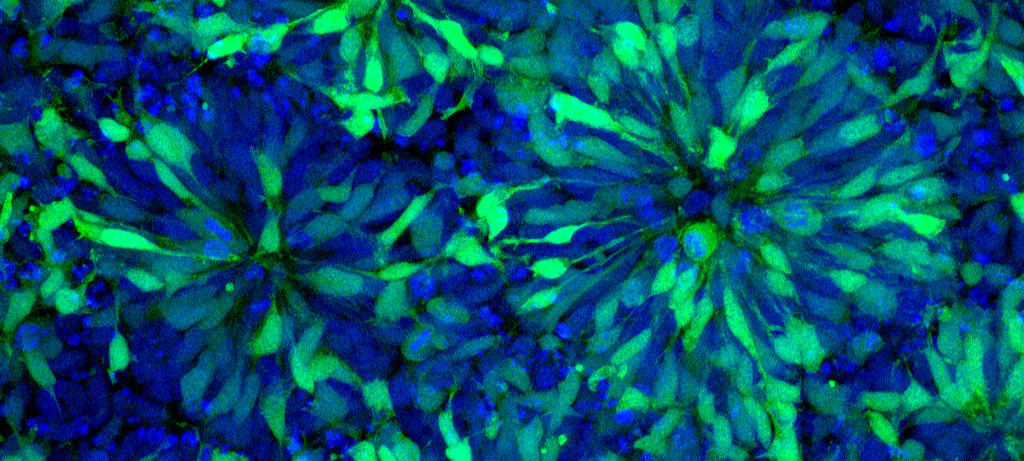
Drimmer-Fischler Family Stem Cell Core Laboratory for Regenerative Medicine
Project Design Consultation
Whether you’re an experienced iPSC researcher or just getting started, our team is here to answer your questions and provide ongoing support. All iPSC services begin with a free consultation to define the scope of the project, including the desired differentiated cell type, the production scale (viable cells) and desired characterization assays.
If you don’t currently have an iPSC line, we can also provide assistance in obtaining iPSC lines from iPSC banks or gene-editing service providers. Consultations are free, so request a consultation today to discuss your project requirements.
Upon receiving your frozen or live iPSC line(s), we expand or adapt the cells in optimal conditions for growth and differentiation. For our transcription factor-based differentiation platform, we use feeder-free, single-cell passaging conditions for iPSC expansion/adaptation for best results.
During iPSC expansion, we produce working and back-up stocks of the iPSC line. A certificate of analysis for verifying pluripotency and karyotype can be supplied upon request.
Expansion & Adaptation
Differentiation
Our choice of iPSC differentiation protocols produces functional and highly pure populations of chosen targeted cells.
Our standard differentiated cell types include a variety of neuronal subtypes (cortical, dopaminergic or sensory) but we can also use our iPSC expertise to develop a custom differentiation strategy for generating your desired cell or tissue type.
Prior to shipping, we conduct a variety of quality control checks to ensure that differentiated cells are free from contaminants, express lineage-specific markers, and have optimal post-thaw viability.
We also offer a variety of optional in-house assay services (such as microelectrode array (MEA)) if in depth functional characterization is desired.
Differentiated cells are shipped either live or cryopreserved depending on preference and are supplied with media supplements and detailed instructions for optimal cell maintenance.
Characterization

National Laboratory for the Genetics of Israeli Populations (NLGIP)
Founded in January 1995 by the Israel Academy of Sciences and Humanities, NLGIP serves as Israel’s national biobank for human cell lines and DNA. The laboratory specializes in the
collection, establishment, and preservation of human B-lymphoblastoid cell lines and corresponding DNA samples from healthy donors, representing the rich ethnic diversity of Israel’s Jewish and Arab populations. This unique resource supports genomic,
population, and stem cell research, offering valuable material for iPSC derivation and disease modeling.